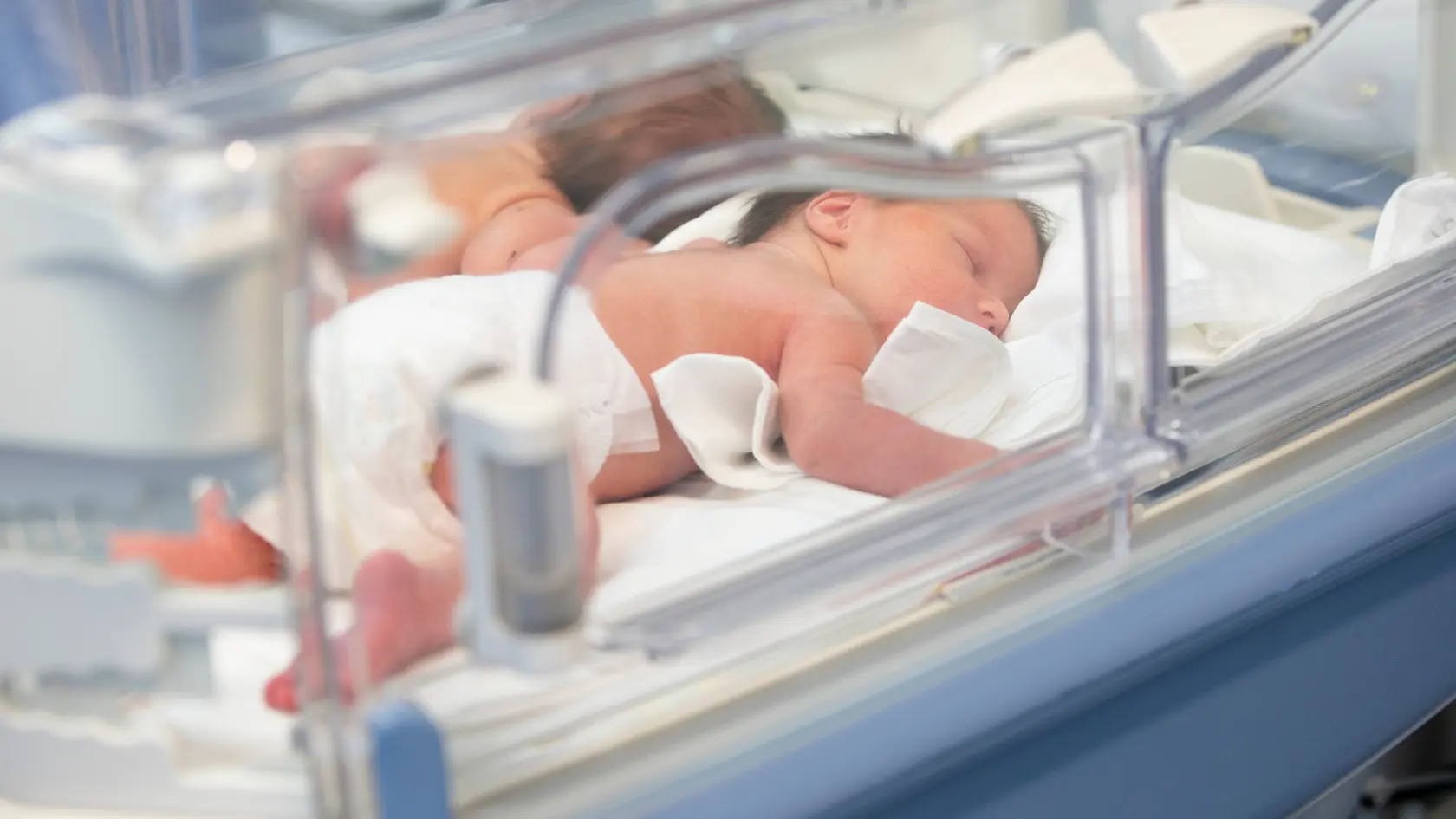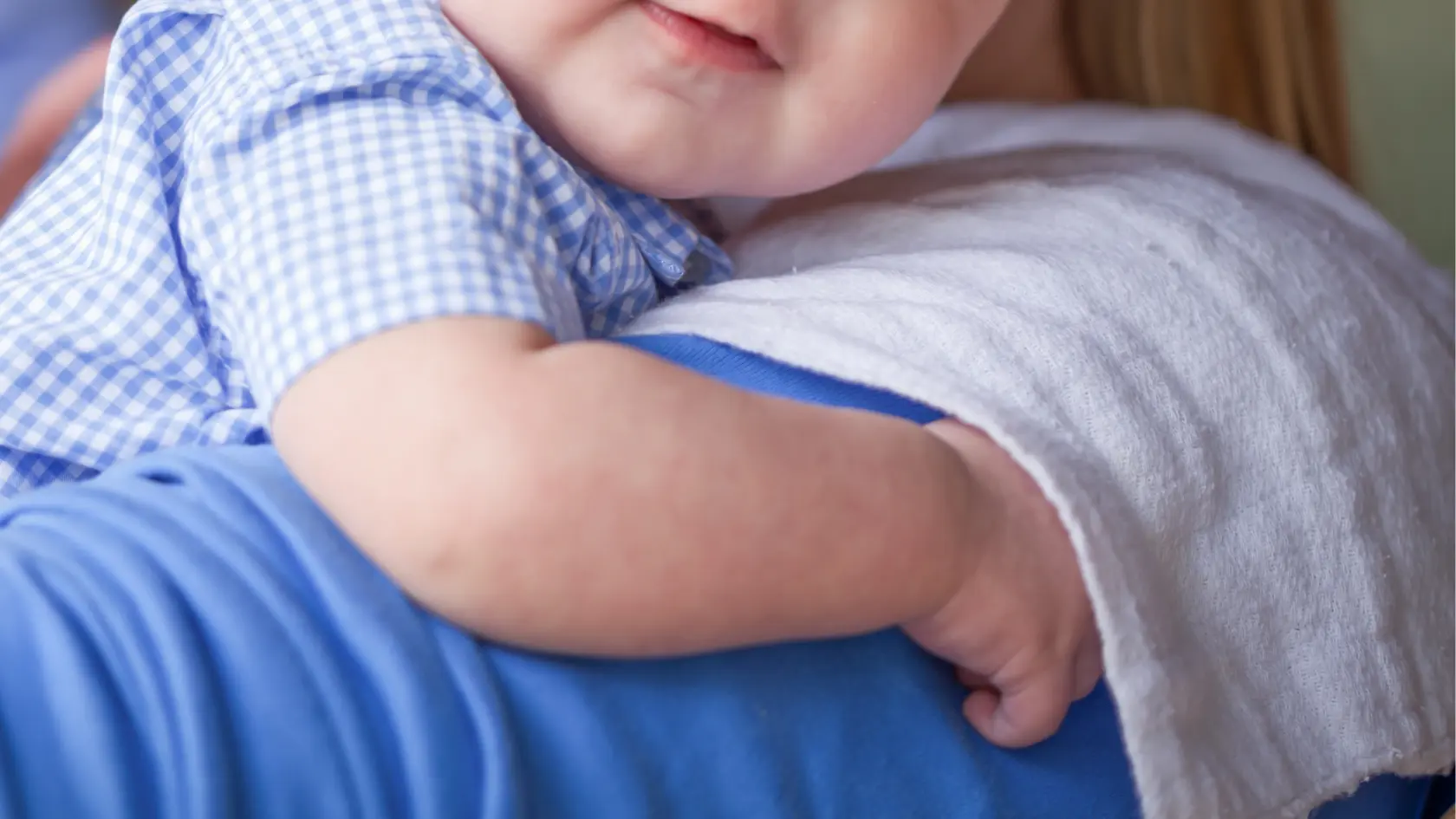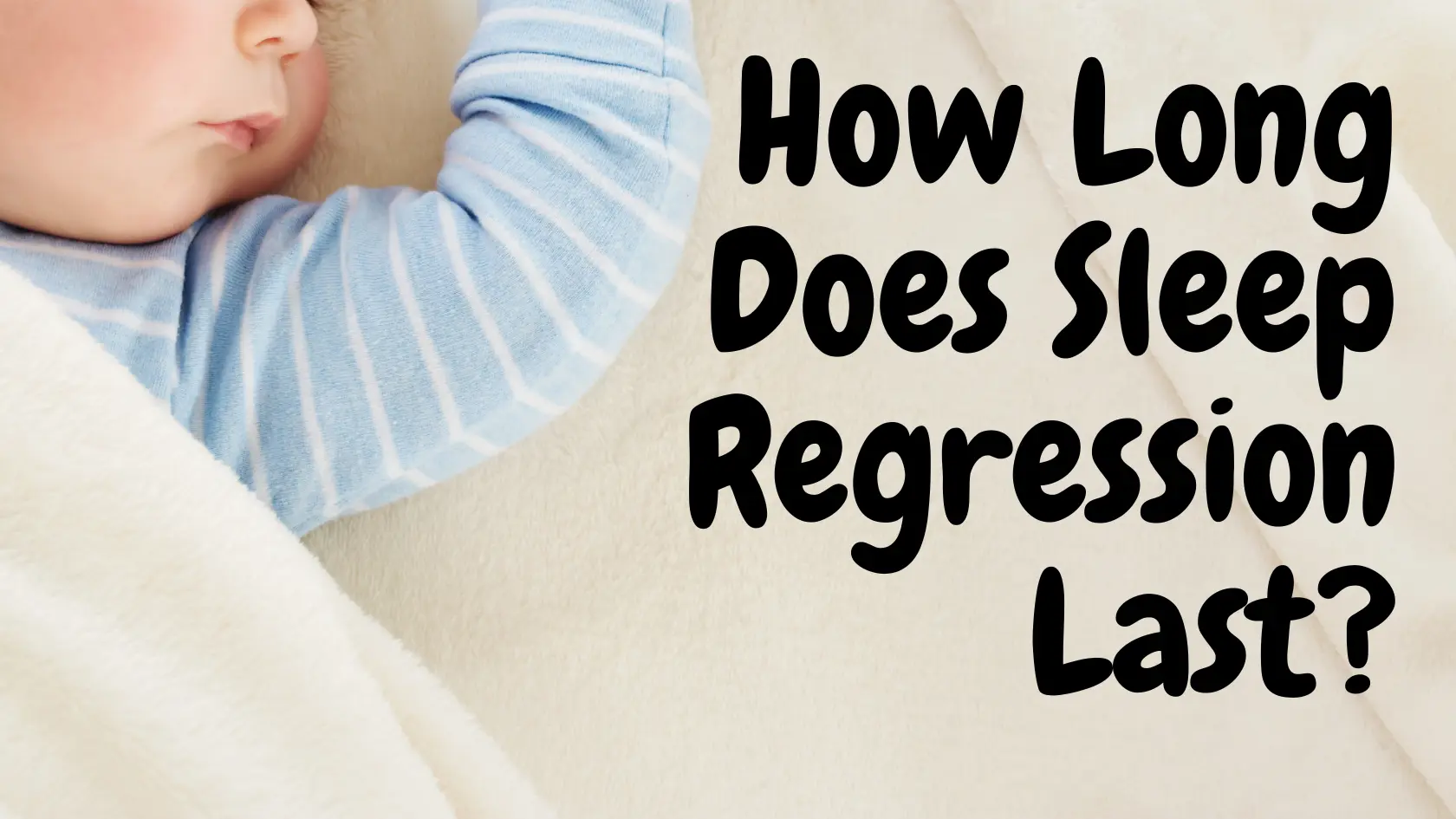Both parents and babies may find newborn diarrhea to be distressing. In addition to understanding its causes, identifying its symptoms, and knowing how to manage and prevent it effectively, it’s critical to distinguish between diarrhea and normal variations in stool. If newborn diarrhea is not treated, it can cause infections, dehydration, and extreme discomfort for your child.
Table of Contents
What Is Newborn Diarrhea?
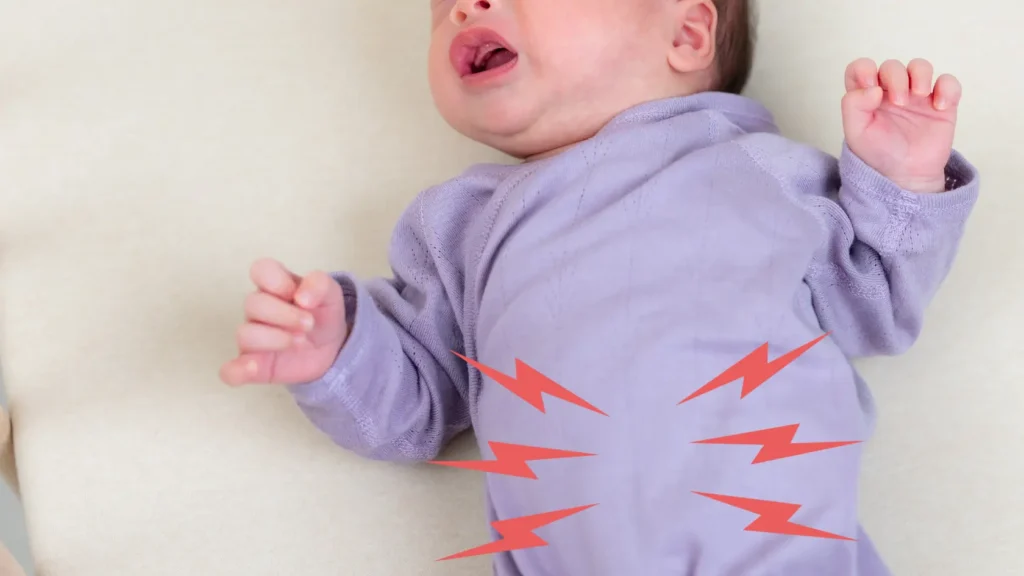
A baby under one month old with frequent, loose, or watery stools is said to suffer from newborn diarrhea. While having several bowel movements a day is common for newborns, particularly those who are breastfed, diarrhea is defined by changes in stool that are more severe than typical. Here’s a more thorough explanation:
Increased Frequency
Newborns typically pass stools several times a day, but the frequency increases significantly when a baby has diarrhea. For example, a baby might go from 4-5 bowel movements a day to 8 or more quickly. The stools are not only more frequent but also different in consistency.
Watery Consistency
Normally, a baby’s stool (especially in the first few weeks of life) can range from soft to loose, but diarrhea makes stools noticeably more liquid. This watery stool can indicate that the digestive system struggles to properly absorb nutrients, often due to an infection, allergy, or sensitivity to something in the baby’s diet (like breast milk or formula).
Possible Accompanying Symptoms
When a baby experiences diarrhea, it may come with other symptoms that signal the body is under stress:
- Fever: A sign of infection or inflammation, common if a virus or bacteria cause diarrhea.
- Vomiting: This can accompany diarrhea, mainly if it’s caused by a gastrointestinal infection, further exacerbating dehydration risks.
- Signs of Dehydration: These are serious and include fewer wet diapers (typically fewer than 6 in 24 hours), dry mouth, sunken eyes, and lethargy. Dehydration is a significant concern with newborn diarrhea because babies are so small and lose fluids very quickly.
Causes of Newborn Diarrhea
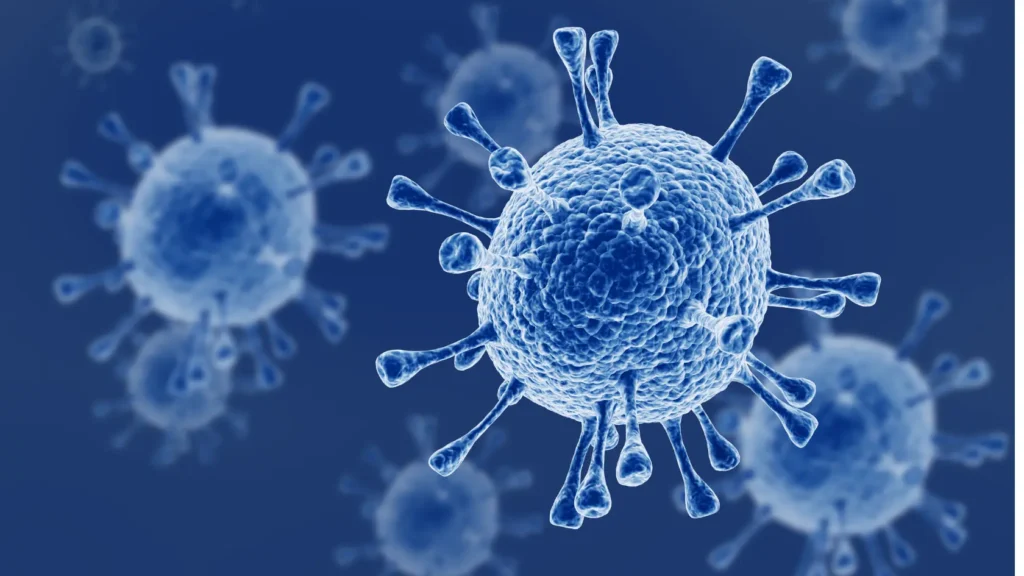
Several factors can contribute to newborn diarrhea, including:
1. Viral Infections
Viral gastroenteritis, also known as the stomach flu, is one of the major causes of infant diarrhea. Rotavirus and norovirus infect the gastrointestinal tract, resulting in fever, abdominal cramping, vomiting, and watery diarrhea. These infections are infectious and can be spread either by individuals or when in contact with contaminated materials or fluids. Unattended viral infections among babies may induce dehydration and often manifest the symptoms very soon. Comfort and hydration: This supportive care is essential during virus activity, as it can linger for days.
2. Bacterial Infections
Newborns may develop severe diarrhea due to bacterial infections, including Salmonella, E. coli, and Shigella. Bacterial diarrhea, in contrast to viral diarrhea, may lead to more severe symptoms, such as bloody diarrhea, high fever, and intense pain in the abdomen. Bacterial infections are usually acquired through infected food substances, water, or surfaces. These infections in infants may lead to severe complications such as dehydration and infections of the bloodstream. This is normally treated with antibiotics, which are given by a pediatrician to get rid of the bacteria. In case of a bacterial infection, it is essential to monitor the worsening symptoms, i.e., lethargy or continuous high fever.
3. Food Sensitivities or Allergies
The newborns may also experience diarrhea as a result of sensitivity or allergies to certain foodstuffs, e.g. the protein in cow milk, the protein in soy or other constituents in the breast milk or formula. The symptoms also vary in regard to the severity of the sensitivity and can be mild diarrhea up to severe reactions which include vomiting, rash and even difficulty in breathing. In the case of infants, allergies or sensitivities to food may trigger inflammation of the gastrointestinal system and discomfort and digestive problems. To relieve symptoms, parents are advised to visit a pediatrician to diagnose and remove the offending food from the baby’s diet.
4. Antibiotic Use
Prescribed antibiotics administered to the child or to the mother who is breastfeeding can alter the normal flora in the gut, causing antibiotic-associated diarrhea. It occurs more in formula-fed babies, though it can also impact breastfed babies if the mother is being treated with antibiotics. Antibiotics kill both the bad and the good bacteria, which might lead to diarrhea, bloating, or some discomfort. In other situations, the distraction may result in the proliferation of harmful bacteria such as Clostridium difficile, which worsens the diarrhea. Probiotics can be prescribed to assist in restoring intestinal health. However, parents should seek advice from their pediatricians on how best to handle those brought about by antibiotics.
5. Teething
Although teething is not a direct cause of diarrhea, teething triggers mild gastrointestinal discomfort due to increased saliva and the tendency to place the hands in the mouth due to teething. When infants learn to put items in their mouths, they might accidentally swallow germs that can infect their digestive system, which can cause loose stools or mild diarrhea. Also, teething may be painful and irritating, which might lead to a momentary alteration in comfort. Such mild digestive upsets usually end as soon as the teething period is over. But in case of diarrhea, it should be noted that it may be a symptom of other conditions, such as infections or allergies, if it continues or is severe.
Recognizing Symptoms of Newborn Diarrhea

Fever
A fever over 100.4°F (38°C) is a common sign of an infection in babies. Fever occurs as the body’s natural response to fighting off infections, such as viral or bacterial gastroenteritis. It’s essential to closely monitor the baby’s temperature because a persistent or high fever, especially one lasting more than 24 hours or exceeding 102°F (39°C), could indicate a more serious underlying issue. Along with other symptoms like diarrhea, vomiting, or lethargy, a high fever may require immediate medical attention to determine the cause and prevent complications.
Vomiting
When vomiting is frequent or severe, it can be a serious threat to the dehydration of babies, particularly as a complication of diarrhea. Vomiting causes loss of fluids and electrolytes; hence, the baby will find it more difficult to stay hydrated. The baby will not be able to keep fluids down, which increases the risk of dehydration, which can easily pose danger to newborns. Parents must be sure that the baby takes small amounts of fluid regularly and can check their capacity to hold the fluid. In case of persistent and excessive vomiting, it is necessary to consult a doctor to cope with dehydration.
Dehydration Signs
Dehydration is a serious concern with diarrhea, as it can cause significant fluid loss quickly. If the baby shows any of the following signs, it’s important to seek medical help promptly:
- Fewer wet diapers: If the baby has fewer than six wet diapers in 24 hours, it may indicate that it’s not getting enough fluids.
- Dry mouth or lips: A lack of moisture in the mouth and lips is a sign that the baby is dehydrated.
- Sunken eyes or fontanel: Dehydration can cause the baby’s eyes to appear sunken or the soft spot (fontanel) on their head to look sunken.
- Lethargy or irritability: A dehydrated baby may be unusually tired, less active, or harder to comfort, as they’re not feeling well.
- Dark yellow urine: Urine that is darker than usual is a clear sign that the body is conserving water and could indicate dehydration.
If any of these symptoms occur, immediate medical attention is necessary to prevent severe dehydration or further complications.
Treatment and Management of Newborn Diarrhea
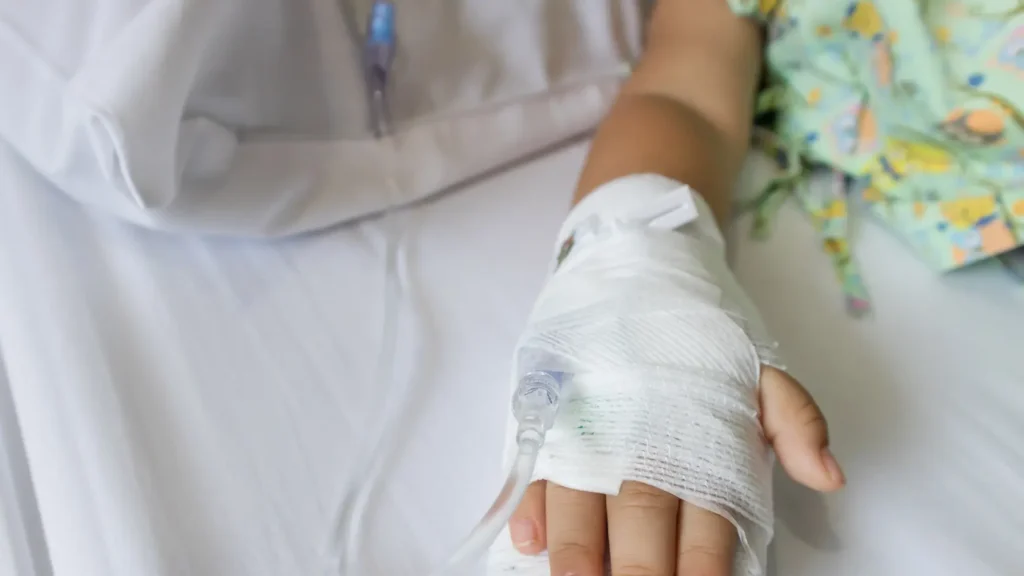
Hydration
Maintaining proper hydration is critical when managing newborn diarrhea. Dehydration is also one of the issues, and babies lose fluids rapidly, so they can be aggravated because of the issue. Infants are supposed to be breastfed since this is the best way to hydrate them and feed them with the necessary nutrients to aid in recovery. It is also advisable to continue with frequent breastfeeding sessions to ensure that the baby is kept hydrated and to boost his or her immune system. In the case of formula-fed infants, the formula must be prepared properly and given at frequent intervals to ensure that the infant is well-nourished and hydrated. In babies over six months old, oral rehydration solutions (ORS) such as Pedialyte can be used to replace the lost electrolytes. However, using ORS in infants below six months old requires consultation with a pediatrician.
Dietary Adjustments
In case of diarrhea suspected of food allergies or food sensitivities, some dietary changes may be required. Female breastfeeding caregivers may have to avoid some foods, e.g., dairy or soy, if they suspect the baby is allergic or sensitive. In case of formula-fed babies, there might be a need to change formula under the guidance of medical practitioners. When a baby is found to be allergic or intolerant to a certain protein or ingredient, a hypoallergenic formula may be used to relieve the symptoms, or altering the mother’s diet may help.
Medications
Antibiotics may be administered by the pediatrician in the event of bacterial infection to treat the underlying infection causing the diarrhea. However, antibiotics can only work on bacterial infections and not on viral diarrhea. In some instances, it might also be suggested to take probiotics to restore the ratio of good bacteria in the baby’s gut. Certain studies recommend that probiotics may be used to aid the digestive system in the process, and after diarrhea, parents should still consult their healthcare provider as probiotics may not be safe for their baby.
Monitoring
It is necessary to closely monitor to ensure that the baby’s condition improves. The parents are to monitor the baby’s feeding habits, ensuring the feeding is still constant, whether by breastfeeding or bottle feeding. Also note the level of activity; lethargy may indicate a state of dehydration or infection. The frequency and regularity of stools need to be recorded, particularly in case of a persistent or aggravation of diarrhea. Be on the lookout when the child becomes dehydrated characterized by decreasing wet diapers, dry mouth and irritability. During the seasons of diarrhea, pediatric checkups play very important roles because the patients get proper care and are likely to be treated immediately in the event of emergency.
Prevention Strategies
Although some of the causes of newborn diarrhea cannot be prevented, some behaviors can be made to spare the risk:
- Hand hygiene: Washing your hands thoroughly before handling your baby or preparing food is crucial to prevent the spread of germs that could cause infections, including those that lead to diarrhea.
- Vaccinations: Ensure your baby receives the rotavirus vaccine, which can help protect them from viral infections that cause severe diarrhea and dehydration.
- Proper formula preparation: Formula preparation should always be done according to the label instructions of the manufacturer to avoid contamination and gastrointestinal complications.
- Avoid exposure: To minimize the risk of infections, isolate your baby in case of sick people and crowded situations, particularly in the flu and cold season when such viruses as rotavirus are widespread.
When to Seek Medical Attention in Case of Newborn Diarrhea
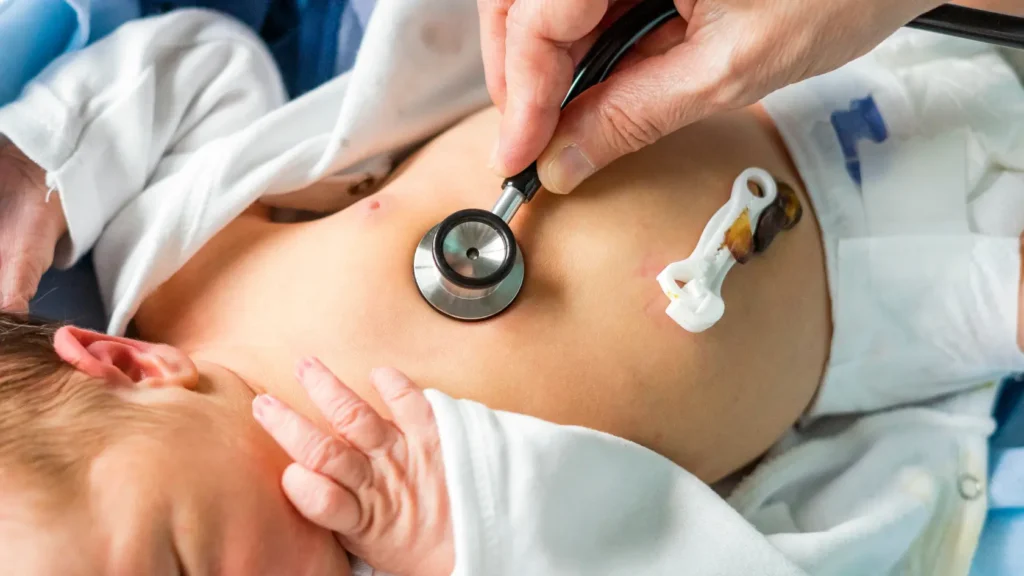
Immediate medical care is necessary if the infant exhibits:
- Signs of severe dehydration: Look for fewer wet diapers (less than 1-2 in 12 hours), sunken eyes, or lethargy (unusual tiredness or lack of energy). These are red flags that your baby may not be getting enough fluids.
- High fever: A fever above 100.4°F (38°C), especially if it lasts more than a day, suggests an infection. If the fever persists, immediate medical attention is needed.
- Blood in stool can indicate a severe bacterial infection or other gastrointestinal issues. It’s important to seek medical care if you notice blood in your baby’s stool.
- Persistent vomiting: If your baby is vomiting so much that they can’t keep fluids down, dehydration can quickly become a concern, requiring medical intervention.
- Diarrhea lasting more than 48 hours: In case the diarrhea lasts longer than two days without any improvement, there might be another underlying problem, and a physician must be called.
Always err on caution and consult a pediatrician if you’re concerned about your baby’s health.
Frequently Asked Questions on Newborn Diarrhea
Q1: How can I differentiate between normal baby poop and diarrhea?
Periodic diarrhea in infants may be of various color and consistency, especially within the first few weeks. However, the symptoms of diarrhea are as follows:
- Watery consistency
- Greater frequency (than usual)
- Potential other symptoms such as fever or vomiting.
Q2: Can teething cause diarrhea?
Although teething may not result in diarrhea, the production of saliva and the hand-to-mouth habit may expose the digestive system to germs, and mild gastrointestinal upset may develop.
Q3: Is it safe to use over-the-counter medications for my over-the-counter antidiarrheal medications?
Counter is not usually advised in cases where the infant is not under medical care. All medications should be administered under the supervision of a pediatrician.
Q4: Can dehydration occur even if my baby is breastfeeding?
Dehydration can occur if the baby isn’t feeding effectively or frequently enough. Signs of dehydration include fewer wet diapers, dry mouth, and lethargy.
Q5: When should I introduce solid foods if my baby has diarrhea?
One must always seek the advice of a pediatrician before the introduction of solid foods and in cases where diarrhea is involved, this condition is only exacerbated by certain foods.
Conclusion: Newborn Diarrhea
The symptoms of newborn diarrhea can be alarming, most babies recover without any problems with the right care and attention right away. Learning the reasons, the early detection of symptoms and consulting the doctor in case of need are the main actions in the process of promoting the health and well-being of your baby.
You can contact your pediatrician to speak with him or her one-on-one and get specific help with the health of your baby.
Explore more on Pregnancy Must –
